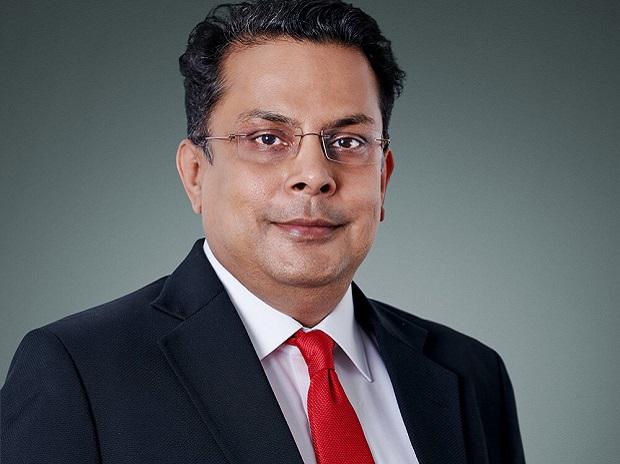“India continues its journey of taking a digital leapfrog by following a bold,
futuristic approach in the Union Budget 2023 with a focus on CapEx-led growth and sustained development, along with embracing emerging technologies. By promoting an AI ecosystem, 5G labs, and setting-up skill centers for emerging technologies, India will get the interdisciplinary R&D boost.
Push for green growth will create the much-needed ESG-driven innovation ecosystem. The boost for MSMEs and startups through credit support and tax incentives will help strengthen India’s core. With custom duty reliefs on machinery and critical components, along with fiscal support for digital infrastructure and access to anonymized data, India is all set for its journey to becoming a strong manufacturing alternative for the world.”
“The Budget has set the stage for a new-age tech-driven revolution in the rapidly growing health and wellness sector of the country. The proposal to develop centers of excellence for Artificial Intelligence will enhance wellness interventions and service delivery in a more digital tech-driven ecosystem. The enhanced application of artificial intelligence will boost the scalability of service outreach of the wellness industry. Moreover, the enhanced focus on types of ‘Shree Anna’ through the development of the Indian Institute of Millet Research will have a value-accretive impact in the wellness value chain in terms of investment and consumption.”
“The ‘Saptarshi’ Budget has laid stronger fiscal support for building digital public infrastructure in 2023-24, which will give further impetus to India’s financial technology stack, including UPI and other digital payment solutions. UPI has witnessed a great boost in recent years by registering a growth of 76% in transactions and 91% in value terms which shows, India is outpacing digital payments in the world and the industry is enhancing its contribution towards nation-building. The inclusion of digital payment systems in Prime Minister Vishwakarma Kaushal Samman is a major step towards strengthening the ‘Digital India’ initiative. The first budget in ‘Amrit Kaal’ combines both growth and consumption. Simplification of KYC methods for digital payments and increased options to keep personal and financial documents in digi-lockers will strengthen the entire digital payments ecosystem. Focus on benefits for individual taxpayers will help in creating increased disposable income, consumptions, savings, etc. all adding to the growth of digital transactions.”
“We are glad that the budget has given some relaxation for MSMEs and enterprises. The finance minister has laid focus on technology, healthcare and education in her budget which is encouraging for the development of the country in the long run. The government has extended support measures for start-ups which are incorporated till March 31, 2024. Tax benefits were available for start-ups incorporated until March 2023, up till now. We think this is a welcome step and the government has asserted the importance of entrepreneurship for the economic development of the country.”
“The 5G ecosystem in India will get further stimulus from this budget. 100 labs for developing applications using 5G services are to be set up in engineering institutions. These labs will effectively develop 5G services to be implemented in a variety of fields. This holds some potential for private 5G deployment in these institutions and further growth of private networks for research purposes. The setting up of these labs will also help the telecom sector which has been at the center of mobile telephony distribution in India. More than 50 cities in the country have access to 5G services, so these labs will help them cover applications such as smart classrooms, precision farming, intelligent transport system, and healthcare.”
“We welcome FM Nirmala Sitharaman’s announcement regarding establishing 157 new nursing colleges in core locations. In addition, the proposal for a multidisciplinary course for medical devices for skilled manpower is also praiseworthy. The dedicated multidisciplinary course for medical devices will be supported in existing institutions to ensure the availability of skilled manpower for futuristic medical technologies and high-end manufacturing and research. The health budget has been increasing yearly, especially after the Covid-19 pandemic. In Union Budget 2022-23, 86,200 crore rupees were allocated to the Union Ministry of Health & Family Welfare, a 16.5 percent increase over the previous year. Apart from that, we also laud the new program for pharma research proposed by the FM. The program will be formulated and the industry will be encouraged to invest in research. The pharmaceutical industry has been asking for incentives to promote R&D investments.”
Travel and tourism is one of the most crucial sectors that contributes to the GDP of our country. The budget will recognize 50 tourist destinations through challenge mode to be developed as a whole package for domestic and international tourism. That will ensure the true potential of tourism for both overseas and domestic tourists can be tapped. All relevant aspects such as high standards for food streets, physical connectivity, virtual connectivity, tourist guides, and tourist security, would be made available on an app to enhance the tourist experience. Every destination will be developed as a complete package. This will not only support the tourism industry but also offer huge opportunities for jobs and entrepreneurship for youth in particular.
“In terms of accelerating the growth of healthcare, the announcement of setting up 157 new nursing colleges in co-locations with the existing 157 medical colleges already established since 2014 will truly help garner better facilities for medical value tourism. This investment in creating a skilled medical support staff will ensure that overseas patients also get the best care possible.
Besides this, facilities in select ICMR labs which will be made available for research by public and private medical college faculty and private sector R&D teams will encourage collaborative research and innovation to help bring in state-of-the-art medical facilities to the country. Dedicated multidisciplinary courses for medical devices will be supported in existing institutes to will ensure the availability of skilled manpower for futuristic medical technologies, high-end manufacturing, and research which will propel Medical value tourism to new heights ensuring facilities that are at par with international standards.”




































